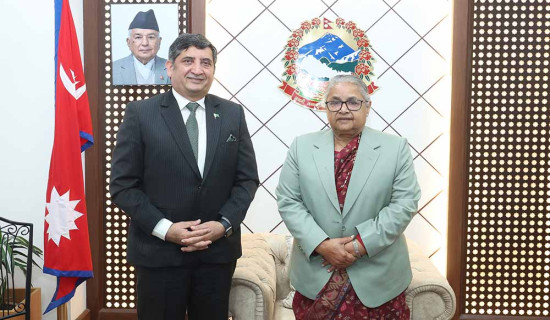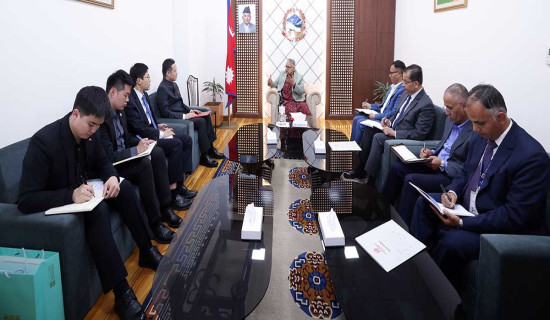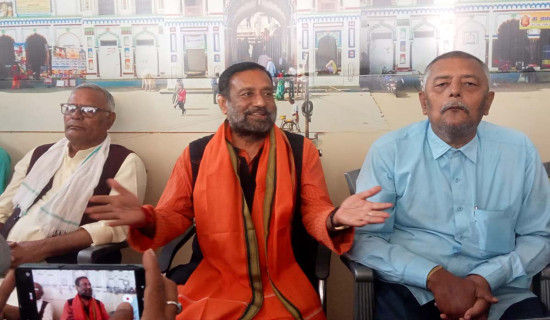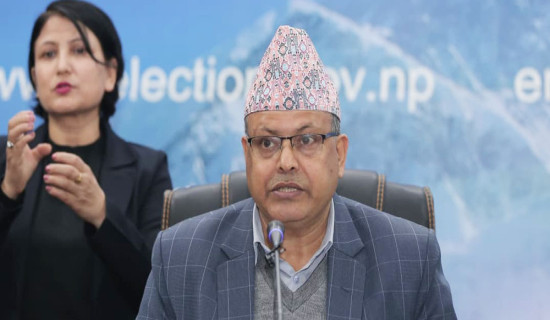- Saturday, 28 February 2026
Promoting Senior Citizens' Rights
Jhabindra Bhandari
The world is ageing as a result of lower birth rates and an increase in life expectancy. More importantly, the demographic transition will have profound socio-economic impacts on individuals, families and communities.
According to HelpAge International, one in six of us will be over 60 by 2030. Living longer and better lives is one of the greatest achievements of modern times. The Asia Pacific, with over 4.6 billion people in 2019, is home to 60 per cent of the world’s population.
For the first time in history, older people will form a large segment of many countries’ populations. In Japan, more than 30 per cent of the population is already over 60. This is expected to grow to 44 per cent by 2050. Japan is not alone – other countries where older people are expected to make up over 35 per cent of the population include South Korea and Singapore.
In Thailand, for example, people over 60 make up 19 per cent of the total population, but in 2050 will make up 36 per cent of the population.
Gender disadvantages
Unfortunately, many older people do not have easy access to social and economic services. There are notable gender disadvantages as well. While older women continue to meaningfully contribute to their political, civil, economic, social and cultural lives; their contributions and experiences remain largely invisible and disregarded, limited by gendered disadvantages accumulated throughout the life course.
As women generally outlive men, and their spouses are often older, they experience widowhood at higher rates than men. In particular, older women who are widowed are more vulnerable in the society. They suffer from poverty due to social disadvantages experienced throughout their lives, including lower levels of education, limited participation in formal work. Many widows are vulnerable to discrimination, financial hardship and isolation.
However, they contribute to their families and societies throughout their entire life.
Additionally, across the world and throughout their lives, women and people living with disabilities are discriminated against. This also applies in older age. Therefore, there is an emerging need to focus on respecting differences and embedding gender and disability inclusion in all strategic interventions that are aimed at creating a world where older people can lead a dignified, healthy and secure life.
In the present context, it is worth noting that the COVID-19 pandemic has exacerbated existing inequalities, with wider socioeconomic, environmental, health and climate related impacts on the lives of older people, especially older women. That is why there are critical needs for concerted actions to embrace the voices of older women and showcase their resilience and contributions in society.
Over the years, there have been significant efforts to promote the rights of all older people to lead dignified, healthy and secure lives in most of the developing countries. National governments and civil society organisations are largely investing resources on social protection and health care, which includes mental health and psychosocial support, and income security with a strong focus on disability, gender and accountability.
More importantly, the United Nations Decade of Healthy Ageing (2021–2030) is a global collaboration that brings together governments, civil society, international agencies, professionals, academia, the media, and the private sector to improve the lives of older people, their families, and the communities in which they live.
Considering the pandemic, the decade of concerted global action on healthy ageing is urgently needed to ensure that older people can fulfil their potential in dignity and equality and in a healthy environment.
While ageing brings an increased risk of developing chronic disease and disability, many older people suffer from Non-Communicable Diseases (NCDs) such as cancer, diabetes, cardiovascular disease and dementia. More significantly, the NCDs account for nearly 90 per cent of the disease burden for the over 60s worldwide.
Therefore, maintaining good health and easy access to health care is a major concern for older people in most developing countries. In the context of pandemics, health systems strengthening should be a priority agenda for governments to address a wide range of health care needs of older people in families and communities.
In Nepal, the government has now a good provision for geriatric wards in few selected hospitals to improve easy access to health care services for older people. Despite significant progress in national policies and action plans, more concerted efforts are needed to implement those polices and strategic priorities so that senior citizens’ rights are better protected and promoted at all levels.
Role of civil society
The role of civil society organisations is crucial to enhance the capacity of Older People’s Associations (OPAs) in terms of ensuring their meaningful participation to access their health care and other socio-economic services. From the very beginning, Nepal Participatory Action Network (NEPAN) together with governments and other civil society organisations notably Ageing Nepal and National Senior Citizens Federation has been proactively engaged in participatory research, public policy advocacy, networking and capacity building initiatives to promote the rights of older people in the federal context.
To sum up, everyone has the right to freedom, equality and a life lived in dignity. As a matter of fact, older people may face stereotyping, prejudice, and discrimination because of the old age. At the global level, there are impressive campaigns run by older people and for older people to challenge ageism in societies and protect the human rights in older age.
(PhD in global health, Bhandari writes on health and development issues)









-original-thumb.jpg)






